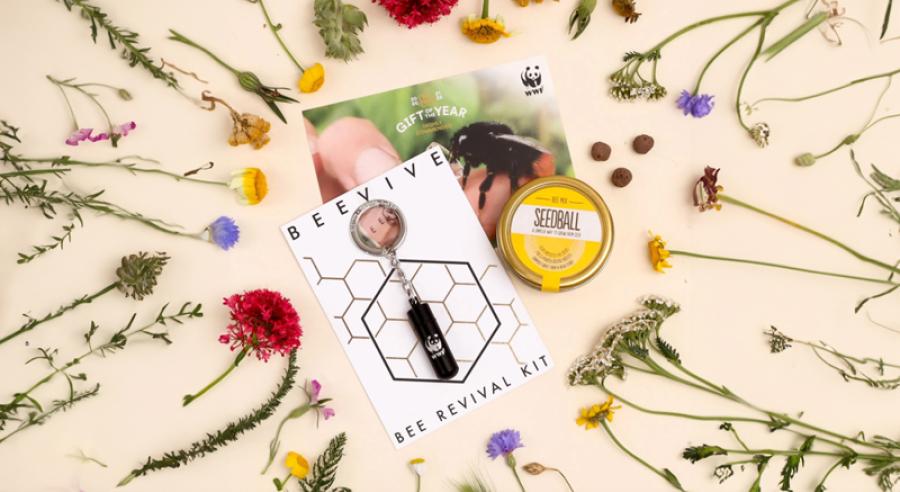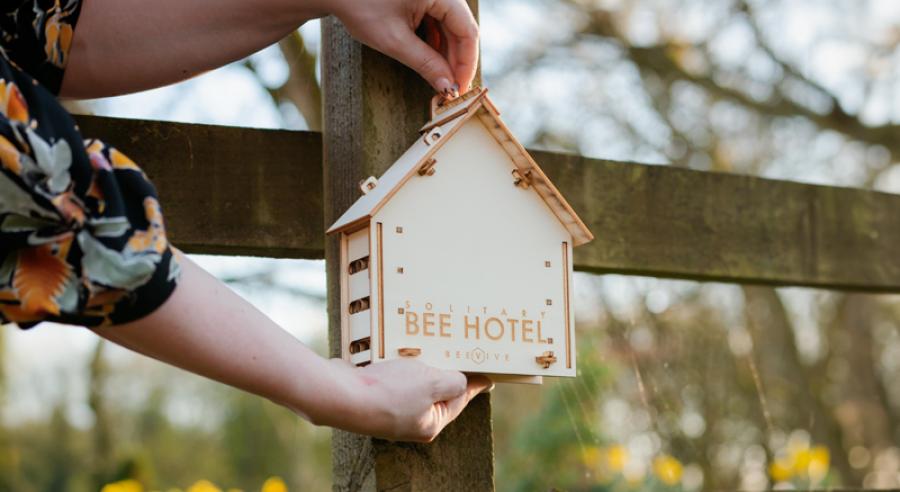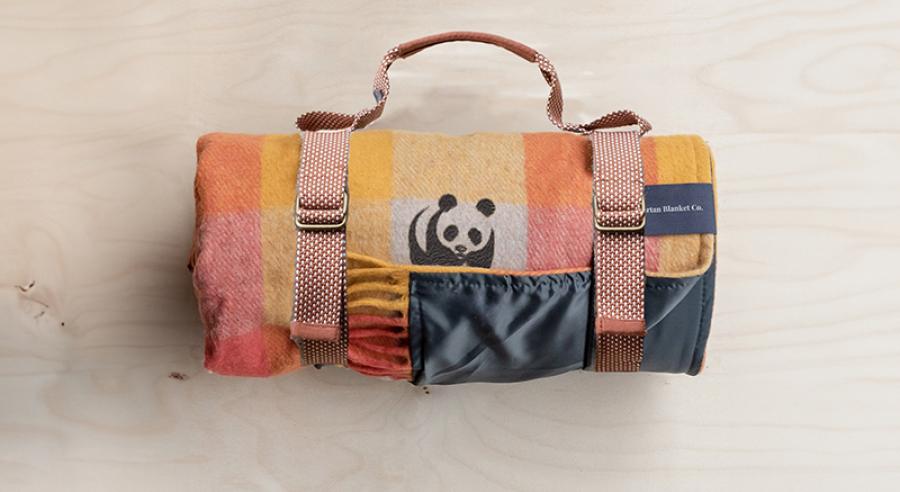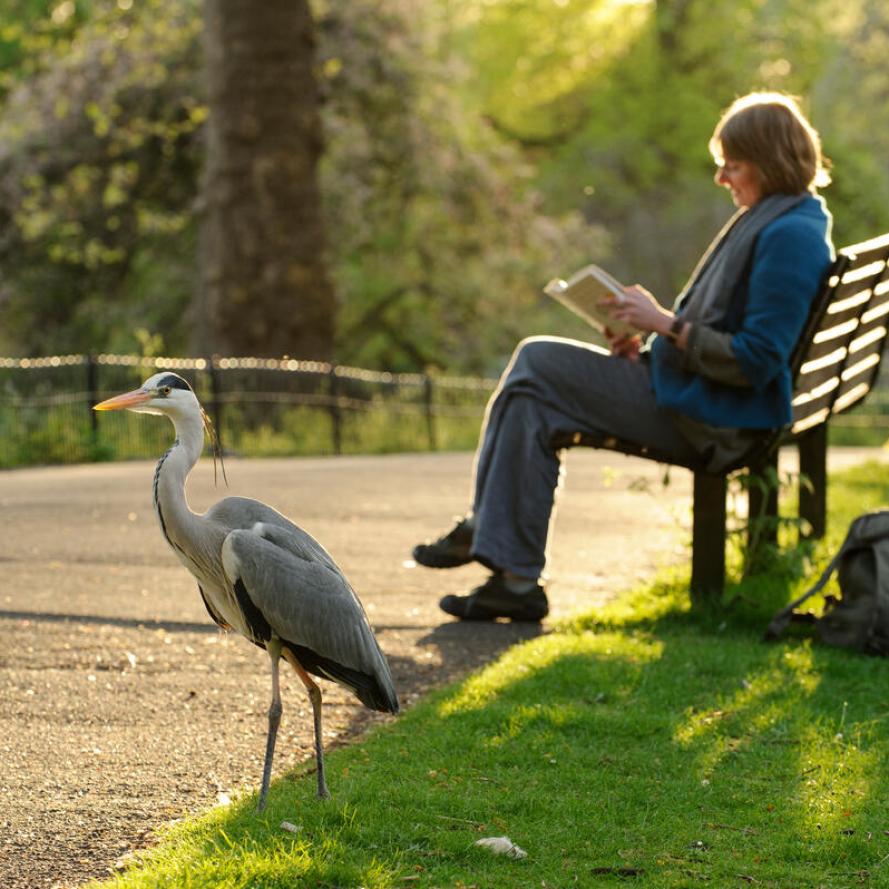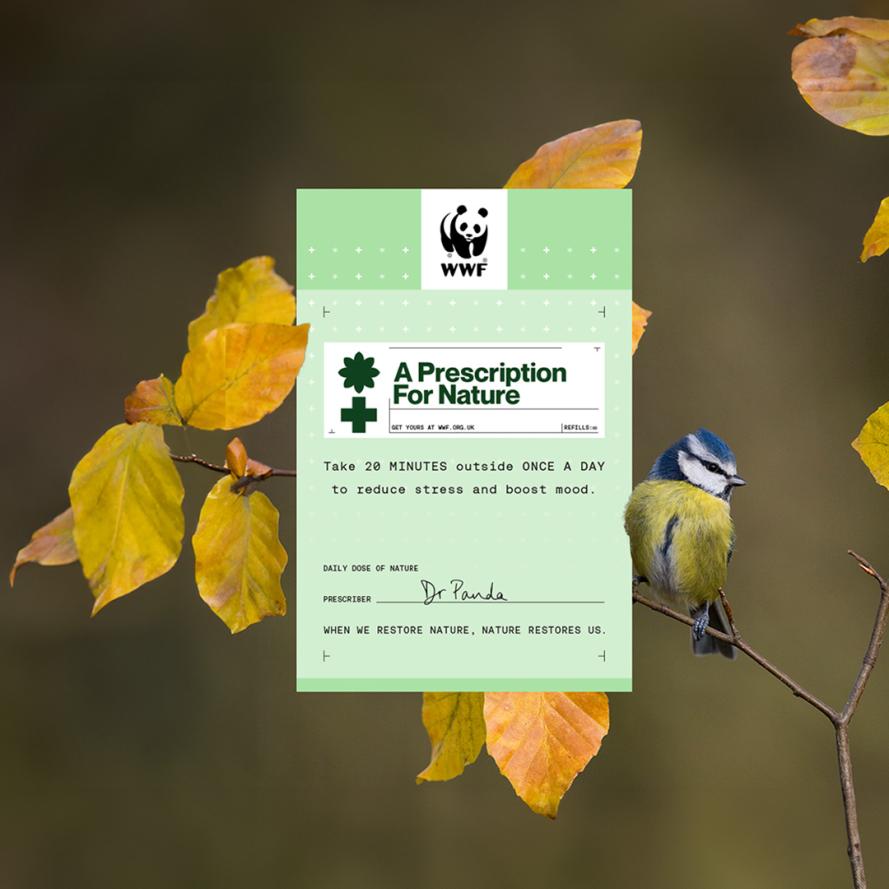

Nature in your Garden


Explore ways to get even more joy out of your garden, or shared green space, and help local wildlife flourish.

Nature on your doorstep
No matter their size or shape, gardens really are wonderful things. In a world that sometimes feels overwhelming, a garden can be a welcome retreat, or a space to gather and grow. They provide homes for native wildlife and contribute to the biodiversity of our community. For many of us, they’re our most direct way of getting close to nature.
On top of the benefits of fresh air and sunshine (sometimes), gardening can be one of the most peaceful and restorative ways to spend your time. What better way to care for yourself and the planet?

Growing gives back
From pollinator-friendly paradises, to balcony veg plots, rewilded beds to hedged havens, a garden lets us choose what our relationship with nature looks like. We have freedom to flex our green fingers, see the seasons change and watch the wildlife that pops over our walls.
Every task we take on in the garden - whether it’s sowing seeds, watering shrubs, or simply sitting down with a cuppa in the cool morning air - helps us cultivate our wellbeing.
As we give to our gardens, they give back to us. When our plants grow, so does our sense of accomplishment. With every coming and going, there’s a feeling of belonging to something much bigger.
Get your daily dose
Wild your garden
Growing plants of all shapes and sizes is a stress-relieving activity that can improve a low mood in minutes. Whatever size your patch of paradise is, there’s always something new to do.
Here are some green-fingered activities you could try:
Make a mini meadow
Boost local biodiversity and bring more nature to your garden with your own wildflower meadow. Scatter some native seeds, sit back and watch the wildness grow! It won’t be long before the pollinators pop round.
Grow your own food
If you’ve got the space to spare, have a go at growing some of your favourite vegetables. You can do this in pots, grow bags or raised beds. The full circle moment of eating a tomato, pea or potato you’ve cared for over months is truly satisfying!
Tend to your handiwork
Peaceful moments in any green space we’ve nurtured shouldn’t be underestimated. Simple jobs such as pruning the hedges, planting out sprouts in spring or gathering seeds for next season are worthwhile ways to enjoy your hours. Take the time to tend, touch, or simply admire your handiwork and know that you’re helping wildlife thrive with every new sprout, leaf and bud.
Play nature detective
The ability to recognise wildlife deepens our relationship with the natural world. If you already enjoy watching nature in your garden, why not take the next step?
Become a nature detective so you can name all the living things nearby. There are birds, beetles, butterflies, trees, flowers… the list goes on. The key is just to begin.
- Start with what you find most interesting. A bright flower. An intriguing tree. A noisy bird that visits regularly.
- Once you’ve chosen your subject, make some notes about what makes it unique. Does it have interesting markings? What shape and colour is it? Where did you find it?
- Look it up with the help of a tool like the Seek app and use the details you’ve noted down to identify it.
- Set yourself the challenge of recognising one or two new species a week and see how far you can go.
Gaze at the night sky
Quiet, beautiful nights can bring us a great deal of peace. Staring up at the stars, however, can make us feel truly magical.
If you live in a dark enough area and have your own garden (or access to a safe green space), stargazing is something you can enjoy all year round. You don’t even need any special equipment.
- Choose a comfortable spot and let your eyes adjust.
- Take a few deep breaths, allow yourself to relax, then take in the big picture – the longer you look, the more you’ll find.
- Search for stars that seem brighter, closer together, or more twinkly than others. These signs can lead you to constellations. You might already know a few, like the Plough (also called The Saucepan or Big Dipper) and Orion’s Belt.
- Use guides to help you discover more about the star patterns in our sky, or have fun making up names for stars yourself.
If you’re unable to get outside, or star-spotting is difficult in your area due to light pollution, there are other objects in the night sky to enjoy. Moon-watching is a wonderful pastime that can be done from any window – a good pair of binoculars will enhance your experience.
If you’re going to be spending time in the cold, always be prepared. Wear sensible clothing, bring blankets and keep a mug of something warm close.
Make a home for birds
The sight, excitement and unique songs of our native birds are an endless source of enjoyment. When we take the time to notice them, we understand how restorative their presence can really be.
Encourage our feathered friends to flock to your garden by providing them with the three big things they need to get by.
Food
Set up a bird feeder with the right sustenance for your local species. A bit of digging about in books, or online, should tell you everything you need to know, but in summary:
- In winter: Birds need high-energy (fat) foods to fight against the cold weather. Always make sure the food you give birds is good quality (not mouldy or full of sugar). Avoid letting uneaten food build up, as this can attract pests and disease.
- In summer: This is a time of year when birds are feeding chicks and raising their young, so providing high protein foods is essential. Some good options are mealworms, waxworms, sunflower seeds and soaked sultanas, raisins and currants. Avoid peanuts as these can be a choking risk for chicks.
Shelter
Buy or build a birdhouse so birds can rest and shelter from the weather. If we’re very lucky, they’ll use their house to nest and raise their chicks in.
Water
Bird baths not only give our winged friends a chance to splash about, they keep them hydrated, too. Shallow is best, but if yours is on the deep side, add some rocks or a ramp so birds can easily get out when they're done swimming.
Don't forget, cats can play havoc on our local bird populations, so always try to set bird-attracting things up safely. That means out of reach of quick claws.
Create a nature journal
Setting aside time to put our thoughts down can be very beneficial for our wellbeing. Keeping a journal is an easy and effective way to do this, because it helps us capture how we’re feeling at any given moment.
How you record your experiences is completely up to you.
- You could: write them down, draw pictures, or record yourself speaking.
- You can use: a pen and paper, a phone or a computer – whatever suits you best.
You might not find it easy to jump straight into keeping a journal, and that’s where nature can help. Using your natural surroundings to inspire your first few entries is a great place to start.
To begin:
- Step into your garden or a green space you share.
- Take a few moments to settle, then mindfully observe your surroundings.
- When you’re ready, head back inside and note down the answers to questions such as:
- What did you see in your garden? Was there anything new, or unusual?
- What was the weather like?
- What did you hear, touch or smell?
- How was your mood before going outside compared to your mood now?
- What were three good things you noticed in your garden today?
Try not to judge what you’re writing and don’t shy away from exploring all your feelings. Even a simple exercise like this has been shown to have a positive effect on our mental wellbeing.
With practice we become even better at noticing the things that make our days happier. That means we become more grateful for them, too.
Build a bug hotel
Bug hotels are a paradise for insects and other invertebrates, like bumblebees, ladybirds, spiders and beetles. They’re easy to make, look great, and provide all-important shelter for our bug buddies throughout the seasons. They’ll also attract lots of wonderful new wildlife into your garden.
Want to make a safe space for creepy-crawlies? Here’s how:
- Grab any sticks, logs or old bits of wood you have lying around. If you don’t have any to hand, collect some on your next park or countryside stroll. Be careful with sharp edges and wear gloves to avoid splinters.
- Find a quiet corner of your garden – a wild, undisturbed spot is best.
- Arrange the wood in a pile, leaving plenty of gaps and hidey-holes for little creatures to explore.
- Add a few dead leaves and you’re done! Now you can relax and let nature do its thing.
If this kind of DIY isn’t for you, you can buy bug hotels (or ‘insect houses’) of all shapes and sizes from garden centres and other wildlife-friendly shops. Just pick where you want to put it, pop it down and sit back.
If you’ve really got the bug, why not help turn your whole community into a nature-rich reserve? Share this know-how with your neighbours so even more of our itsy-bitsy insect friends can thrive!
Give a hedgehog a home
Like humans, hedgehogs need safe places to rest, hibernate and raise their hoglets. If you’ve got space in your garden to spare, creating a haven for our spiny friends is a fantastic way to use it.
It’s so satisfying to support a species like this, especially one that’s becoming rarer. As a bonus, you’ll bring even more nature to your door and might even get a glimpse of these cute nocturnal creatures.
Hedgehog homes can be made or bought, but making your garden welcoming is step number one. Here’s how:
- Provide plenty of ground coverage with lots of native bushy plants
- Use twigs and logs to set up some wild, secluded spots for hedgehogs to hide in
- Create some shelters using upside-down planters, or crates, with dry leaves inside.
- Put out some hedgehog-friendly food and drink – water, worms and cat food are good. PLEASE avoid bread and especially milk, as our spiky friends are lactose intolerant (unable to tolerate dairy products)! Their dinnertime is around dusk.
- Leave small gaps in your boundary wall or create mini ramps. Hedgehogs love to travel between gardens, so this will help them get around easily.
Pass all this onto your neighbours and, before you know it, you might be responsible for creating a Hedgehog Superhighway!
“If I feel overwhelmed it's nice to take myself into the garden and listen to some birds.”
WWF supporter
Shop the nature collection
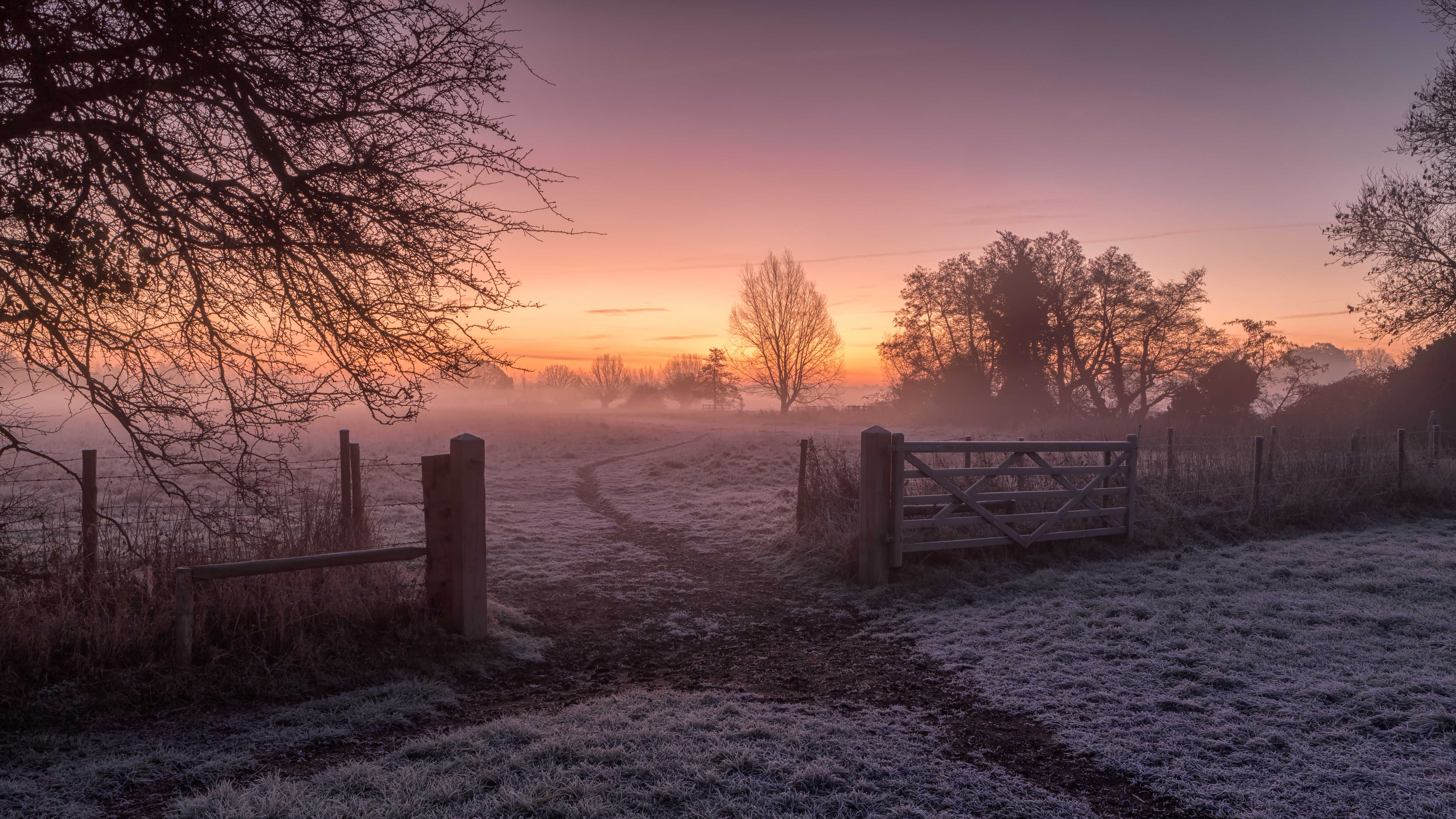
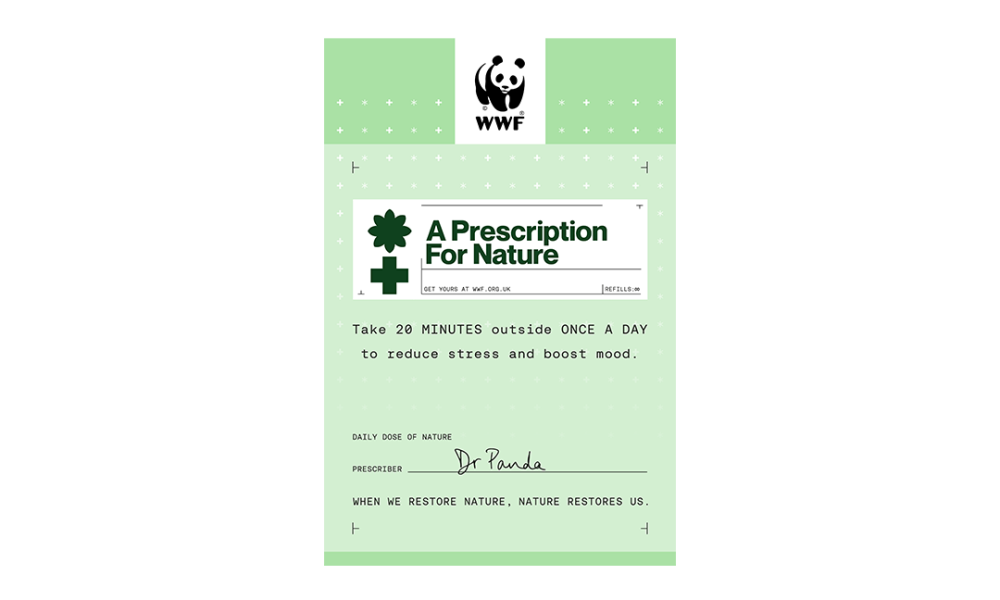
A dose of nature in your inbox
A dose of nature in your inbox
Join our mailing list to receive uplifting content that inspires you to connect with nature and support its restoration.

More ways to get involved


Mental health support
Mental health support
The Mental Health Foundation is a charity committed to building good mental health in the UK, offering evidence-backed advice and resources, and developing better ways to support good mental health in every community.

